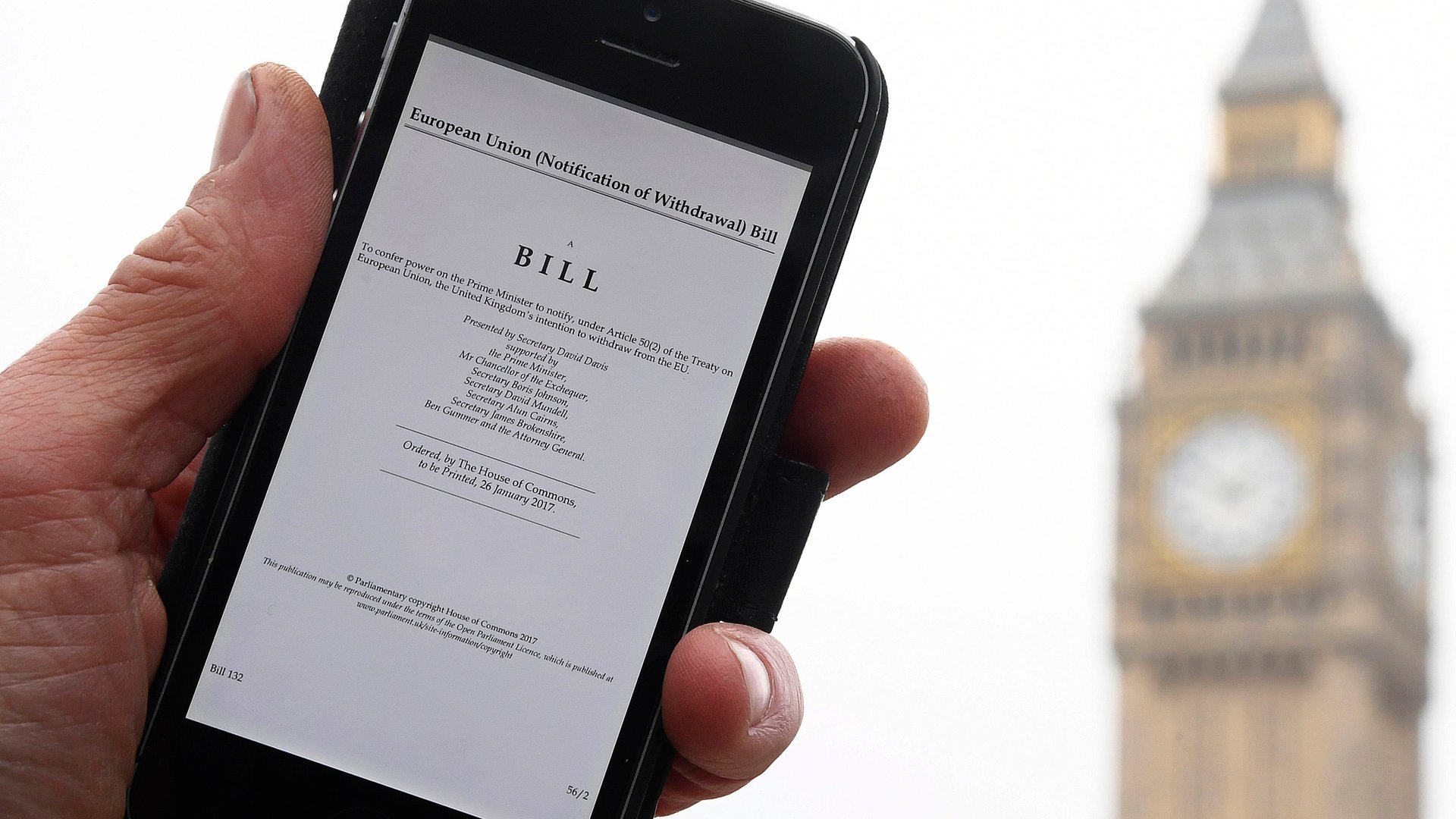The European lawsuit that could have given Brits a way to stop Brexit is dead
Earlier this year, the London-based lawyer Jolyon Maugham filed a court case in Ireland that would have established a way for the UK to stop Brexit. But now he and his fellow plaintiffs have decided to withdraw the case before it could be heard.


Earlier this year, the London-based lawyer Jolyon Maugham filed a court case in Ireland that would have established a way for the UK to stop Brexit. But now he and his fellow plaintiffs have decided to withdraw the case before it could be heard.
Maugham’s case was centered on Article 50, a clause in the EU’s founding treaty that sets out the process for a member leaving the union. It was never tested before the Brexit vote. All Article 50 says is that, once triggered, the departing member state has two years to negotiate the terms of its exit. It doesn’t specify whether the member could later revoke the notification if it changed its mind about leaving the bloc.
The court case in Ireland was designed to establish whether Article 50 could be revoked. Maugham chose Ireland hoping that the court there would refer it to the European Court of Justice (ECJ), whose decision would have been binding on the UK. But it seems Ireland did not want (paywall) to get involved in what it considers a UK domestic issue.
“With regret, we have agreed between us and with Ireland that the litigation should be discontinued,” Maugham said in a statement.
Maugham could have pressed on regardless. If the case failed in the Irish high court, he could have filed to the Irish supreme court and eventually got to the ECJ that way. But the costs to mount such challenges would be greater than the £70,000 ($90,000) Maugham raised via crowdfunding.
What’s more, Maugham’s legal counsel suggested that there was also no guarantee of a conclusion before October 2018, the deadline the UK government says it will set to conclude Brexit negotiations with Brussels. At that point, there was no way to stop the UK leaving the EU, according to legal opinion.
“I do not want to seek to raise such a substantial sum of money unless I can be satisfied that to spend it for the stated object is prudent,” Maugham said. “And I regret that I am not.” After accounting for legal fees and lawyer costs, any money left from the crowdfunding campaign will be given to other Brexit-related litigation run by the Good Law Project, which Maugham oversees, or given to charity.
“We knew there was no guarantee of success,” Maugham said. “But we were right to try.”